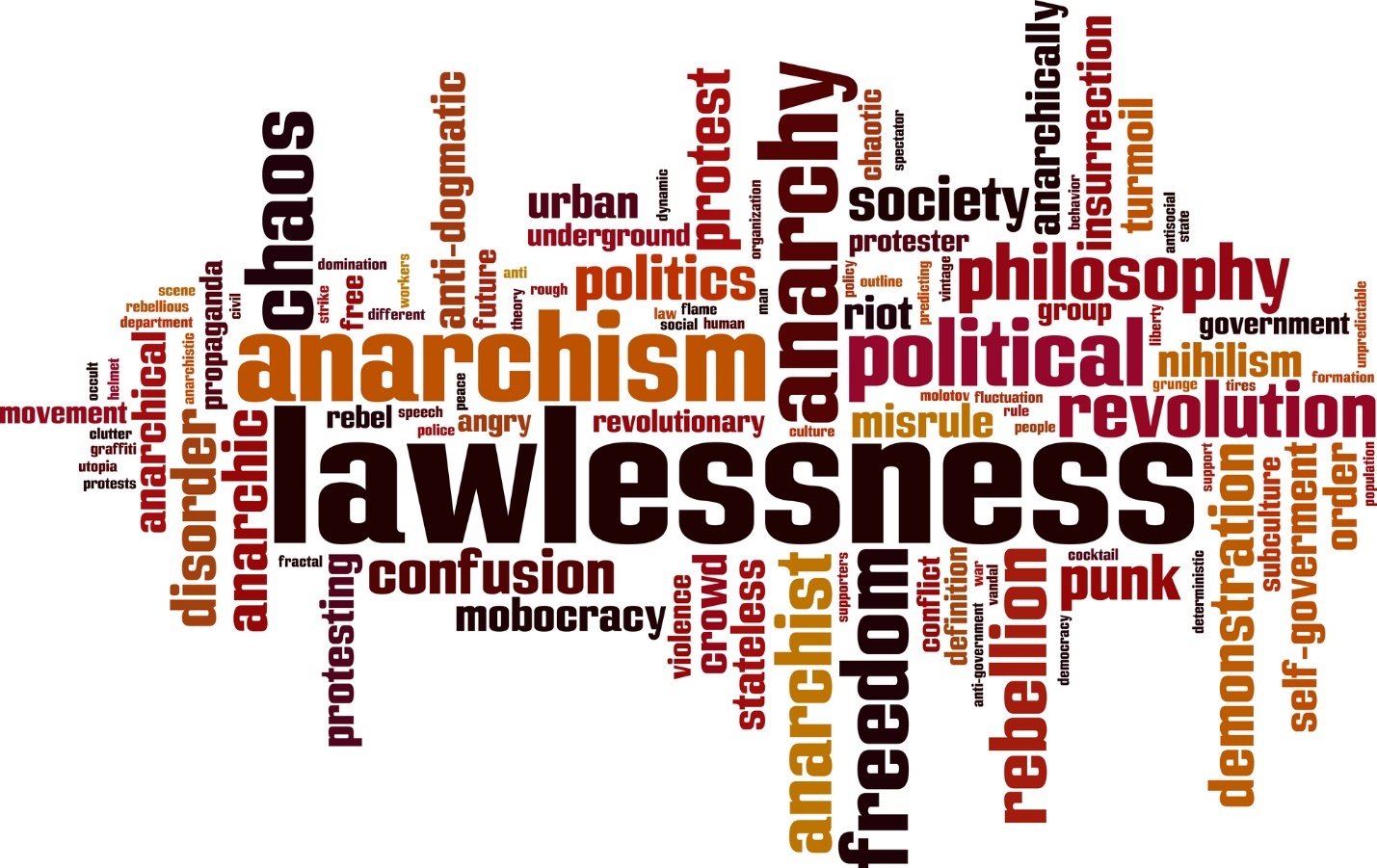BP50
Truth is so obscured nowadays and lies so well established that unless we love the truth, we shall never recognize it ~ Blaise Pascal

What is reality anyway? Do we create our own reality, or does it exist apart from our personal experience and subjective interpretations of it?
Reality and truth overlap. What is real is what is true, and what is true is what is real. So, it does seem rather important to discover what is objectively real during our brief sojourn on this planet. Otherwise, we will believe things that are false and build our lives on illusions that appear right but are nothing but wisps of smoke.
It is not my intent to discuss Aristotle and realism here as opposed to Plato and idealism. Rather, I want to consider reality from the perspective of what is truly true as opposed to what a person claims is true because they view it in his or her kaleidoscope of reality.
It was Dallas Willard in The Divine Conspiracy who said, Truth is unforgiving; it does not change if you have certain opinions. No one has ever made a belief true by believing it. Beliefs are true or not in terms of the reality which they represent. So if we get it wrong, we’re in trouble.
In short, reality is totally unyielding to false belief.
In the world we live in, we encounter the clash between absolute truth/reality and relativism every day. The latter believes that truth, reality, knowledge, and morality are determined by the current society, culture or historical context. In this view, reality is not absolute but changeable, defined by those who hold the most cultural currency, so to speak.
Some will assert that everyone has the right to choose what they wish to believe apart from any universal belief system or morality. Reality is decided by men and women, not the other way around. Humans are above reality. They are reality makers not reality receivers. In short, they are gods.
In relativism, humans are above God as well. Someone like Friedrich Nietzsche can simply decide that God is dead and hold a funeral for Him and that is that. Humans assign themselves the role of God’s undertaker and ironically bury the very One who created them. Or, at least, they claim that they committed deicide.

It is not possible for a human to kill an invincible God, of course. He does not die and become irrelevant to your life simply because you claim that you are now the boss. Thinking a thought does not automatically canonize it as reality.
Such a view of knowledge and truth is even more astonishing than if Jena came up to you and announced her belief that the sun does not exist. Such a claim would be scoffed at by any rational person because we see the sun and we profit from its presence every second of every day. Someone like Jena could still, in her relativistic belief, decide that the sun is dead or simply does not exist. Pronouncement becomes reality.
How silly is that? How dangerous is that? Consider another example of pronouncements with me–an historical one.
Fifty years ago in America, people embracing relativism pronounced new moral standards that addressed harm done to bald eagles and their eggs. Specifically, in 1972, amendments were passed that increased civil penalties for destroying a bald eagle egg to a maximum of imprisonment for a year and a fine of $5,000. A second conviction earned a more severe penalty of two years in prison and a $10,000 fine.
But there’s more.
If a misdeed committed against a bald eagle or its eggs was determined to be felonious, the maximum fine could reach $250,000!
A quarter of a million dollar fine for destroying a bird’s egg.
Less than a year later, in 1973, Roe v. Wade was passed. In this landmark decision, the Supreme Court ruled that a woman was at liberty to abort her baby without government interference or penalty. To destroy the offspring of a bald eagle, then, would earn you several years in jail and a mammoth fine but killing your own human baby carried no penalty and was even deemed free from any consequence whatsoever.
Am I trapped in a bad dream? Somebody please wake me up and tell me that this is not reality.

I guess the moral of this story is that it is safer to enter the world inside an eagle egg than inside a human mother’s womb and more advantageous to arrive in the image of a bird than in the image of the eternal God.
Isaiah’s words were right: Woe to those who call evil good and good evil, who put darkness for light and light for darkness, who put bitter for sweet and sweet for bitter! Therefore, as the tongue of fire devours the stubble, and as dry grass sinks down in the flame, so their root will be as rottenness and their blossom go up like dust; for they have rejected the law of the Lord of hosts and have despised the word of the Holy One of Israel. Therefore, the anger of the Lord was kindled against His people . . .
When absolute truth is overruled by human whim or a demand for rights, one can see that even common sense goes out the window. We are now reaping here in America what we have been sowing for decades. The cheapening of reality in this country has been going on for over half a century.
As an earlier generation used to say, the chickens [not the bald eagles] have come home to roost. In other words, our abandonment of God’s moral truth in favor of human opinion or convenience or rights is now culminating in culture-changing moral erosion on the level of the Rock of Gibraltar being worn away entirely in a year. We will reap what we sow when we suppress God’s truth and announce that human opinion is the law of the land.
Against this backdrop of absolute reality as opposed to relativism, I would like to briefly discuss one concept in scripture that appears in two different settings. The concept is that of exchanging. In fact, I refer to them as the Two Pivotal Exchanges. Your reality and your future depend on which exchange you choose to build your life on. They are found in Romans 1 and in 2 Corinthians 5.
The first exchange–one engineered by humans–entails the denial of God. Romans 1 tells us that men and women exchange the absolute reality of a Creator God for idols.
Since God’s word often compares His relationship with His people to that of a husband and a bride, a person could view the exchange of God for idols in Romans 1 as a husband having an affair with another lover that ultimately leads to the abandonment of his wife for the paramour. He forsakes his marriage partner for another person because he has idolized an affair—either the woman herself or the excitement of illicit love. Or both.
In order to justify this affair (since everyone deep inside knows that breaking vows to your marriage partner is wrong as per God’s hard-wired law in the conscience), the idolater must deny the original spouse in some manner. He must criticize her character or accuse her of not being the woman he married or even push the very thought of her out of his mind. He must somehow suppress the truth that the marriage promise to his wife is binding or deny that he has done something wrong or rationalize that his wife has not held up her part of the contract. Accordingly, it is logical and fair for him to divorce her.
Yes, men and women are capable of divorcing both spouses and God.
Similar to the example of the unfaithful husband, Romans 1 says that humans by their unrighteousness suppress the truth. For what can be known about God is plain to them, because God has shown it to them.
Here, then, we see that humans are experts at denying reality because they want a different version of it that will not condemn the desires of their hearts but will actually commend their wants or at least allow them. They do not wish to be hemmed in by the absolute truth of God.

Since they do not wish to conform to the God who Himself is truth, they dismiss God’s reality and create their own. They remove the existence of God from their version of reality and truth, or they massage the eternal God into their image. God no longer exists absolutely but is manipulated to fit each person’s favorite version of a convenient deity who never places any limits on them or calls them to obey Him.
Such relativism is a reflection of Proverbs 29:18: Where there is no prophetic vision [God’s truth] the people cast off restraint, but blessed is he who keeps the law. We can either honor and obey God’s absolute law for us that He placed within our hearts in the form of a universal conscience, or we can ignore God’s reality for us and create our own new morality.
Here we see at work the defenses that Freud described in his writings—cognitive mechanisms like denial, rationalization, and suppression/repression to name but a few.
(And maybe even projection where the husband takes an aspect of his unfaithful character and sees it not in himself but in his wife thus giving him a justification for his divorce. Am I the only one who wonders how often our struggles with God’s handling of evil and suffering is really our Get Out of God’s Reality Free Card? If an unfaithful person maligns the character of his spouse to justify an affair, cannot humans do the same with God so they can justify pursuing their idols?)
While Freud was able to astutely identify the universal defenses that are woven into the fallenness of the human personality (he did not create these defenses, of course, just put names to them), he did not see their purpose through the lens of God’s absolute reality but through the eyes of human opinion only. As an atheist, Freud viewed them as mechanisms to fend off anxiety due to external threats or from an internal conflict between the id, the ego and the superego that resulted in guilt.
He did not define them as tools humans employ to dismiss or explain the consequences of their disobedience to God’s moral reality.
The suppression (or repression) of truth in Romans 1 and the casting off of restraint in Proverbs 29 both reflect a person who chooses their version of reality over what is absolutely real and true. Both passages portray the relativism where humans pronounce what they want reality to be instead of obeying the truth that is already objectively and absolutely established in God’s created universe. Both passages are examples of how we are all capable of exchanging God’s eternal reality for our own manufactured version of reality.
What happens when humans tolerate God’s love and mercy but suppress the truth that Jesus is a Being who is also holy and righteous and absolutely just? What follows after we have exchanged the glory of the immortal God for images . . . and exchanged the truth about God for a lie and worshiped and served the creature rather than the Creator . . . and women exchanged natural relations for those that are contrary to nature? ~ Romans 1: 23ff
What is the final result when we exchange the greatest Treasure in existence for dollar store desires?
Romans 1 describes what happens when we exchange God for idols (for another husband): Since they did not see fit to acknowledge God, God gave them up to a debased mind to do what ought not to be done. They were filled with all manner of unrighteousness, evil, covetousness, malice. They are full of envy, murder, strife, deceit, maliciousness. They are gossips, slanderers, haters of God, insolent, haughty, boastful, inventors of evil, disobedient to parents, foolish, faithless, heartless, ruthless. Though they know God’s righteous decree that those who practice such things deserve to die, they not only do them but give approval to those who practice them.

In light of Romans 1, a relevant question that needs to be addressed in the context of Designer Therapy for Life is, how much physical suffering and broken relationships in our world are the result of exchanging God for the idols we desire? The idol might be sexual sin, adultery, greed, resistance to authority, bitterness against parents, or blatant anarchy. All these arise naturally when God’s love and truth are suppressed.
The universe was not designed to tolerate a vacuum. Something will always fill emptiness.
No judgment or condemnation is intended here, just a commonsense question: What occurrences of even mental illness are due to suppressing the truth about God and His moral law and choosing our own path?
So, here we have the first exchange, one that portrays how men and women deny God’s truth and choose instead their version of truth to the detriment of their own character and treatment of others. Of course, the consequences–depression, anxiety and suicidal ideation to name but a few–that may follow the dismissal of God is often not viewed as a factor of suppressing the knowledge of God but is blamed on the messenger.
That messenger may be God’s word or it may be those who are not willing to embrace the first Pivotal Exchange and instead shed light on the disobedience or immorality that is being chosen over God’s reality.
Always remember that humans are wired by God to experience healthy shame and guilt when they sin against Him and His commands, healthy in the sense that these phenomena warn their host that what they are doing or thinking goes against their original nature that was created in God’s image. These divinely designed responses to violating God’s reality are summed up in Galatians 6.
Do not be deceived: God is not mocked, for whatever one sows, that will he also reap. For the one who sows to his own flesh will from the flesh reap corruption, but the one who sows to the Spirit will from the Spirit reap eternal life.
Humans who deny Jesus refuse help from the One who has already paid the debt for their sins and who also defends them before the Father. Consequently, they must defend themselves against the loud voice of guilt that follows in the wake of their sins. These individuals who have not been washed clean by God will typically deny truth and reality before they will ever admit their own disobedience.

Holding someone accountable is healthy. Blaming others, however, is the act of projecting one’s own shame that accumulates day after day when God’s forgiveness has not been embraced.
The second Pivotal Exchange is unlike the first—the human perpetrated exchange–in that it is driven by the love of God. It brings liberation and life rather than slavery and death. Its message is short and sweet—really sweet: For our sake He [God the Father] made Him [Jesus the Son] to be sin who knew no sin, so that in Him [Jesus] we might become the righteousness of God ~ 2 Corinthians 5:21.
This exchange is very different than the rebellious exchange humans practice when they suppress God’s reality. Here in 2 Corinthians we see how Jesus loved us so much that He came to be a sacrifice to pay for our sins of idolatry and unfaithfulness. He pursued humankind to offer us His righteousness in exchange for our sin so that the Father might welcome us into His family as holy and blameless sons and daughters.
Peace, friendship, and reconciliation are the results of Jesus’ most awesome exchange. Who would not desire such amazing gifts? Only those who suppress the truth about the knowledge of God and choose their reality over God’s.
As we saw in Romans 1, fallen humans suppress the truth about God. After the Tragic Fall, men and women are unnaturally twisted toward choosing their own way instead of submitting to their heavenly Father’s perfect will. Here is where the defenses Freud encountered in his observations of human nature are readily employed.
We engage in an intentional denial of God’s existence and commands, claiming that God is dead. We rationalize our choices as typical and acceptable human behavior instead of heeding God’s warnings about sin. We project our badness onto others and even onto God Himself so we do not have to acknowledge our own disobedience.
These defenses and others exist to fend off the guilt and shame that naturally result when we raise our fists in defiance against the divine realities that are chiseled into the bedrock of this universe.
Fortunately for us, part of the divine reality manifested in the second exchange is that God is not only truth, but He is also love. Even though our rebellious, relativistic position separated us from Him, God chose to pursue us in the person of His son, Jesus. His unconditional love prompted Him to meet us in the dark gloom of our self-made dungeons so that He might call us into His glorious presence.
And you were dead in the trespasses and sins in which you once walked, following the course of this world, following the prince of the power of the air, the spirit that is now at work in the sons of disobedience—among whom we all once lived in the passions of our flesh, carrying out the desires of the body and the mind [suppressing God’s truth and choosing our relativistic version of reality], and were by nature children of wrath, like the rest of mankind. But God, being rich in mercy, because of the great love with which He loved us, even when we were dead in our trespasses, made us alive together with Christ ~ Ephesians 2:1-5.

What an amazing exchange! Jesus loved us so much that He pursued a people who did not even want Him—even hated Him—and paid the penalty for our rebellion and anarchy so that He might give us His righteous character. God’s exchange rate (asking zero from us and giving us the infinite riches of a relationship with Him) is matchless.
What a staggering contrast to the human exchange (Romans 1) where we divorce God, sow the seeds of fleeting pleasures, become the opposite of what we were created to be, and reap massive mental health issues because we live out of our fallen selves instead of the new selves God offers us.
Reality is your friend—at least God’s reality. It is your friend because it tells you the truth. We may not always want to hear the truth about ourselves and our fallen state, but it is far better to welcome the truth of our brokenness and God’s amazing solution to it than to deny God and exchange the most precious treasure in all existence for a rusty bucket with holes in the bottom.
So, how can reality impact your life if you are someone who has chosen to grow into the new self Jesus gives you at the moment you receive His Pivotal Exchange?
When you seek help for the problems in your life, whether they be physical, spiritual, psychological, or relational, I’m assuming you want someone to tell you the truth about how to get better, right? You can always find someone who will help you blame God and your parents or who will tell you that guilt is a social construct and that you are free to color outside the lines of life as much as you wish because, truth be told, there are no lines.
It is at this point that I mention something I’ve advised before: If you ever decide to pursue the journey of counseling as part of your growth as a child of God, be sure to hitch your wagon to a therapist who embraces the reality of God instead of the world’s reality. Be wise about who you hire to guide you across the desert or the ocean or the freezing tundra. You absolutely need someone who will see you through the lens of ultimate reality and guide you in total reliance on God’s Spirit. Even among professed believing therapists, be choosy.
Also remember that meeting with a psychologist is quite different than seeing a medical professional. The latter may never impact your mind and soul because the focus will be on your physical body. The former will enter the holy of holies of your heart every session.
Yes, if you want healing guidance that is rooted in God’s truth, you need to work with someone who will tell you that identifying the faulty ways you learned to cope with the abuse, abandonment, shame, or neglect in your past may be the most important factor in your growth. You must seek someone who will help you recognize that your psycho-spiritual-relational issues are not present simply because someone sinned against you but largely due to an innate brokenness within you that must lovingly be identified and healed at every level. Especially at the level of trust in God and other safe people.

As you navigate the dark seas of life, do you want opinions and flimsy guidelines, or do you want the map and the compass that will lead you in a true direction to the right destination? Yes, in a universe built on absolutes, there is such a thing as a true direction and a right destination. Real. Absolute. Unchangeable. You must have a rudder that is absolutely true or you will be at the mercy of the dark winds in this world that will blow you into oblivion.
Some people love their comfortable version of reality far too much to even consider God’s map, compass, and rudder. They prefer a denial of reality that frees them to choose their way instead of embracing what is divinely true in the world. If we remain shackled to our defiance, we all want what we want when we want it and will oppose even God to get it.
We are uniquely stiff-necked creatures. Fortunately, we are also deeply loved by Jesus who always pursues the lost sheep.
So, are you growing in reality—God’s reality? Or are you surrounding yourself with the relativistic truthiness of the culture around you that is suppressing God’s truth and is living in the passions of the flesh? Are you embracing the kingdom of darkness or are you, like Moses, spending so much time in God’s presence that your face is radiant, shining so brightly that many around you wonder what sets you apart from others?
Practice His presence.
Look to the One who made you for a great adventure.
Never forget that reality is your friend.
His name is Jesus.
Those who look to Him are radiant, and their faces shall never be ashamed ~ Psalm 34:5

